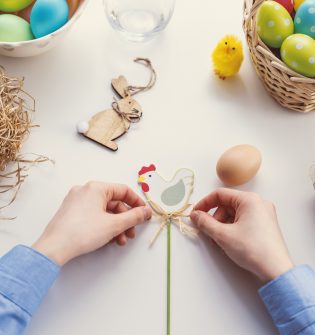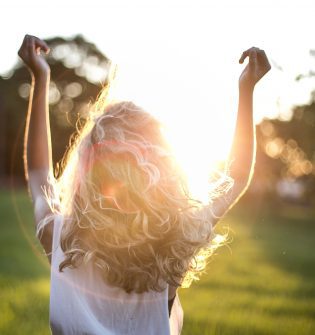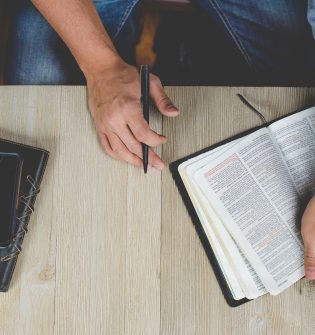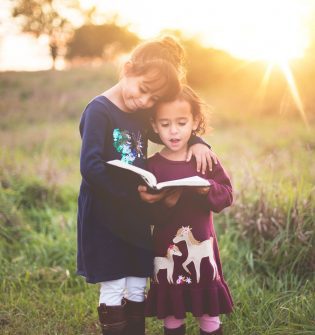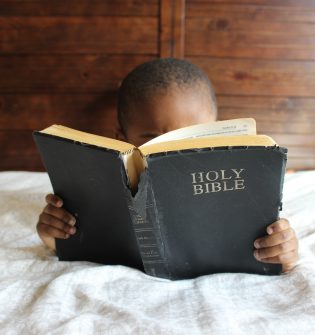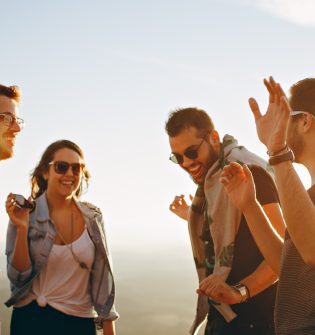2025
Winter 2025 E-Newsletter

Valentine’s Day
Focus on self-love and self-care
Valentine’s Day is traditionally a day for expressing affection and admiration between close connections, often with a romantic theme. For those who have survived violence and abuse, Valentine’s Day can be especially stressful. Survivors may experience complex, conflicting emotions, including love and hate, comfort and unease, attraction and fear. Unhealthy relationships may not be violent and abusive every day, and survivors cling to the happier memories, hoping that abusers will change, and that the latest episode of maltreatment will be the last. Unfortunately, it is common for incidents of abuse to become more frequent and increasingly severe over time. Survivors will often experience multiple cycles of violence, reconciliation, hope, regret and self-loathing.
Focusing on self-love and self-care are great ways to move forward from unhealthy relationships, and Valentine’s Day can be a time to highlight and practice this positive shift. Rather than being influenced by social pressures and expectations of idealized romantic love, exploring concepts of self-acceptance, nurturing, and supportive relationships can help survivors move away from old patterns, toward improved physical, emotional and mental wellbeing.

In preparation for Valentine’s Day, we polled our Willow Place team to find out what self-care looks like for them – here are some of their tips!
“Spending time with family and friends…time at the lake…Exercising and walking helps me maintain my physical and mental health.” Lisa L.
“It is a habit of love, love for myself…I eat healthy and always have two books on the go… Self-care is about making time for what you love. I love my children and my grandchildren, and I spend lots of time with them. Long-time friends are important as well.” Diane P.
“I make soup and muffins to freeze and share with family.” Pam H.
“I seek out nature and feel most grounded near…water, trees and sunsets! Doing so…reminds me to appreciate life.” Renee R.
“I smudge at least once a day…It makes me stop, breathe, reflect and re-set with good intentions and an open mind. I also love to bead. When beading I…think good things and send out that energy into the piece I am making.” Lisa K.
“I have plants…My plants have…become my support system. They’ve heard everything, and they’re still…growing.” Vishakha
“I…prioritize…my physical and mental health. I engage in activities that I love, but I also…do things that I may not enjoy as much, yet I know are good for me…I believe…sometimes what feels challenging can also be beneficial, and my goal…is to keep pushing myself to improve.” Kimi B.
“I like to go for massage, watch comedy, talk with important people in my life, and cook, sometimes, depending on how I feel.” Louisa S.
“I…stay away from my phone…relax on my bed…while at other times I…choose to relax with movies. I practice…gratitude and affirmation. Spend time with my family…take time to listen to soft music…I do a long walk and connect with nature.” ‘Lola I.

Board of Directors Update
Thank you to our volunteer board members
In Fall 2024, we bid farewell to board member and Secretary, Pamela McLeod, after ten years of service. We also welcomed new board member, Serena Bevilacqua as a member-at-large. Existing board member, Scott Robillard assumed the Secretary role for our board. Special thanks to Pamela for her many years of diligent support and valuable insight. and thank you, Scott and Serena for your commitment – we appreciate you!

View our board member profiles: CLICK HERE FOR INFORMATION!
Volunteer Recruitment
Open positions in the shelter program
We are excited to be engaged in a volunteer recruitment this winter for a variety of roles that support our shelter program. Currently, we are accepting applications for shelter support, donation support, cultural program support and translation support (Arabic and French languages). All Willow Place volunteers must apply and go through a selection process like applying for employment. Regardless of their role, all prospective volunteers must supply current background checks and complete our online and in-person training.

To view our current volunteer opportunities:
CLICK HERE FOR INFORMATION!
International Women’s Day
Women’s rights are human rights

International Women’s Day (March 8) is an annual worldwide observance to draw attention to the contributions of women, and to women’s issues. Sadly, we are experiencing a time where, despite past progress, women around the world are denied basic human rights, such as a right to safety. Women are experiencing increasing rates of physical, sexual, economic, emotional, reproductive and social violence.
Women make up half of the world’s population and are equally capable in all areas of life. In developing nations, it is estimated that women produce 80% of the food and help to sustain the environment for future generations. Despite this, women are among those most-impacted by food insecurity. Former communist leader Mao Zedong once declared, “Women hold up half the sky,” to highlight the essential contributions of women, but all too often women’s rights are not upheld, and they face extreme hardship and marginalization, including violence and harassment in the work force, and a disproportionate share of unpaid care and domestic work.
Patriarchal systems of oppression assert and preserve male dominance in all areas of human life, and democratic governments that are more supportive of equal rights for women are under systemic attack globally. Less than 30% of world nations have democratic governments. For those wishing to diminish and control women, democratic nations pose a threat to agendas of dominance.
Technology, which has enabled real-time communications and has removed barriers for many who were previously isolated, is also being manipulated to spread hate speech and misinformation. Too many people struggle to distinguish fact from fiction while extreme political and paramilitary groups infiltrate, normalize and circulate hate-speech, dismantle cultural tolerance, and encourage criminal behaviours.
Historically, wars and political agendas have been waged over women’s bodies, and these crimes against humanity are being experienced today with disturbing frequency: abduction, torture and rape of women and girls (e.g., Sudan, Ukraine, by Russia; In Israel by Hamas; in Republic of Congo, called the “Rape Capital of the World”). Extreme examples of gender-based violence are escalating in Afghanistan where the Muslim-extremist Taliban have restricted women to their homes, banned windows and education, and have forbidden women to communicate with women outside of their home. In the United States, long-established female reproductive rights have been dismantled in many states (Roe vs. Wade), leaving victims of rape and incest scrambling to find doctors who will help them with therapeutic abortions.
Female genital mutilation, forced marriages and child marriages continue in sub-Saharan Africa and the Arab States as well as Asia, Eastern Europe and Latin America, estimated to have impacted over 230 million women and girls. Despite education and intervention efforts, it is anticipated that 68 million more girls will be victimized between 2015-2030. Several countries have no minimum age for marriage, including Gambia, Saudi Arabia, South Sudan and Yemen. In Canada, the legal age for marriage is age 16, which is not old enough to vote or drive a car.
Human rights, especially women’s rights, are fragile and under attack. It is especially important to not be complacent, to not minimize threats to rights and freedoms; to speak up for women and girls, to seek improved conditions and protections, and to hold elected officials accountable – our shared future depends upon it.

Staff Feature – Meet Lisa K., Housing Support Specialist

Please share a few things about your background, and things you enjoy.
As a proud Métis woman, I have a passion for supporting and empowering women, girls and 2SLGBTQI+individuals, while on their journey of healing. For over 19 years I have been working in the Gender-Based Violence sector in various roles, within numerous organizations. I have stayed dedicated to this line of work because I value the importance of humanity, and everyone has the right to live a life free from violence. Even though my impact may be small I believe that the ripple effect will be everlasting and that matters.
Please tell me about your role at Willow Place – what are your main responsibilities and tasks?
I feel honored to have the opportunity to work in partnership with participants while they seek, explore and hopefully obtain housing. Some of the responsibilities and tasks I have are:
– Finding viewings for participants to attend alone or I can accompany them
– I can offer transportation for a variety of reasons if it assists with securing housing,
– I frequently provide advocacy and encouragement when the process is overwhelming
– I help complete paperwork, applications and letters of support
– Making referrals to partnering agencies and organizations
Moving out of shelter can be exciting and new for participants but it may also be a lonely and scary time. As part of Outreach services, I offer home visits to help participants transition and adjust to their new home, navigating conversations with landlords/property managers and referrals and advocacy to other supports in the community.
What are three things you enjoy about this role? What are some difficult aspects of your role?
I enjoy having the opportunity to work directly with participants, going out of the shelter and working in the community, and working with my incredible co-workers and fantastic leadership team. One of the difficult aspects of my role is when a participant works hard to secure housing and is not successful within their shelter stay.
Can you tell me about trends or common needs that you are seeing among the vulnerable populations served daily in the shelter program?
Over time I have seen affordable and safe housing options become less and less available to individuals who are experiencing GBV. Subsidized housing waitlists have grown, and the housing markets have spiked. This trend has left survivors of GBV even more at risk and vulnerable.
What are your hopes and dreams for the future in terms of the valuable role you play in violence prevention?
Is there a person or experience that has shaped your interest in violence prevention, or has motivated you to help others?
One of the people who has inspired, encouraged and taught me to find and use my voice while working in the GBV field was Anna Pazdzierski (former ED of Nova House, Manitoba). Not only was she a role model and leader but an inspiration. She gave me opportunities to speak up and question societal expectations/norms for women. Without Anna giving me my first job in a violence prevention shelter and the experience I had there, I don’t know if I would have chosen this as my life career.
Third Party Fundraising

Were you aware that the majority of Willow Place fundraising is third-party fundraising? Each year we are very fortunate to be approached by a variety of groups who hold fundraising events on our behalf.
Those who support us are diverse and include faith-based groups, schools, universities and colleges, the health sector, policing, business community members, and service clubs. We also have had individuals and friend groups organize fundraising efforts.
These fundraisers provide much-needed funds to fill funding gaps in areas such as food security, cultural programming, children’s programming and more! They also help to raise awareness of violence prevention services and the prevalence of gender-based violence in the Manitoba region, and help to supply our shelter program with a wide range of in-kind items listed on our WISH LIST.
If you are interested in third-party fundraising, feel welcome to contact our community team to request information: Pam 204-615-0313, ext. 237; Kimi 204-615-0313, ext. 245

